ECCE Sector in Ireland: Historical Context, Provisions, and Employment
VerifiedAdded on 2023/01/13
|5
|912
|405
Report
AI Summary
This report provides a comprehensive overview of the Early Childhood Care and Education (ECCE) sector in Ireland. It begins with a historical context, tracing the development of ECCE policies and regulations, including the National Children's Strategy and subsequent legislative changes. The report then outlines the range of provisions within the sector, detailing various roles such as nursery nurses, playgroup leaders, childcare managers, special needs assistants, and public health nurses. It also analyzes the employment rights applicable to ECCE workers, referencing key legislation such as the Workplace Relations Act, the Protected Disclosure Act, and the Protection of Employees Act, among others. Finally, the report discusses the required qualifications and career paths within the ECCE sector, highlighting the importance of specific certifications and educational levels, such as FETAC level 5 and level 7, to ensure quality service provision and career progression. The report concludes by referencing key sources used in the analysis.
1 out of 5
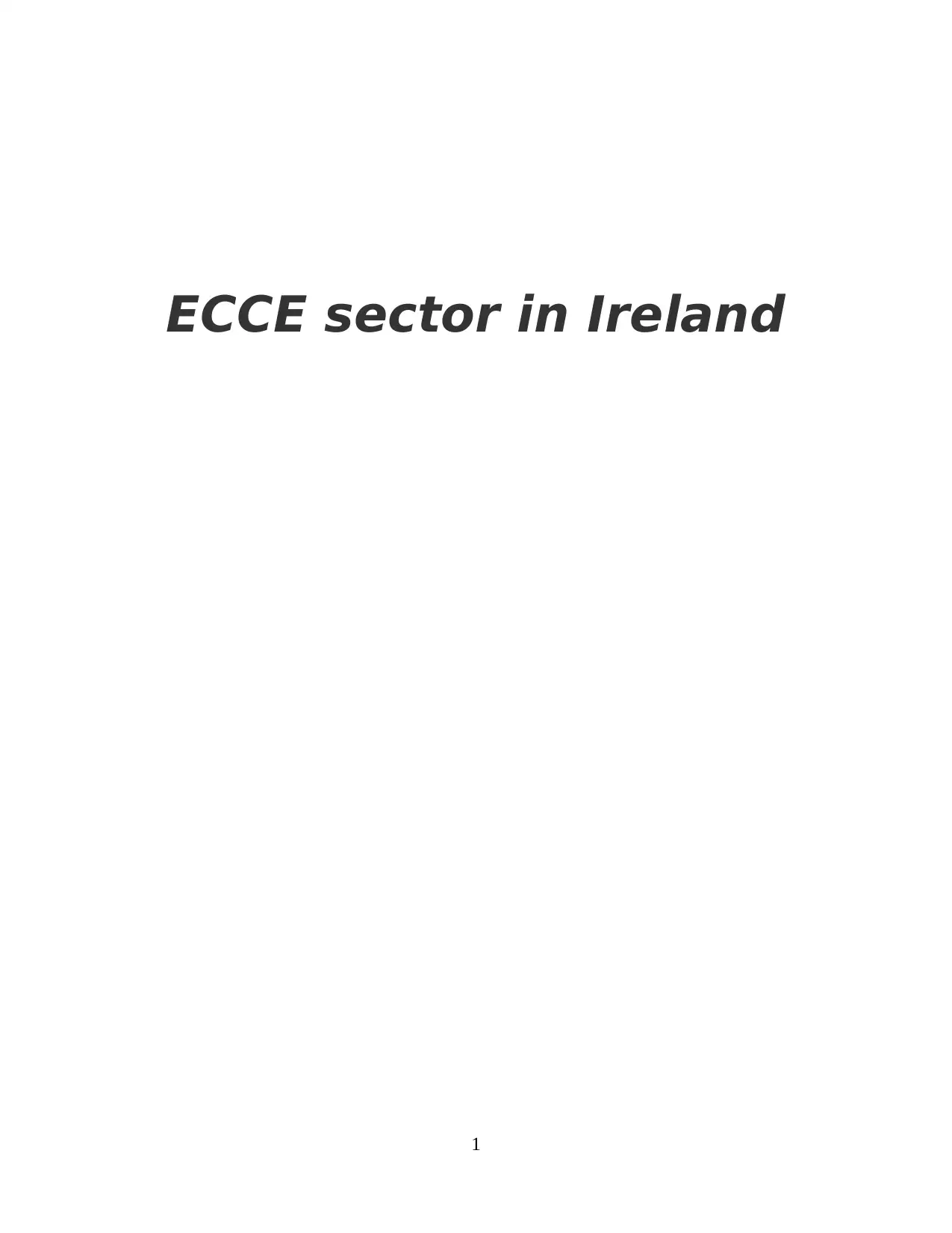
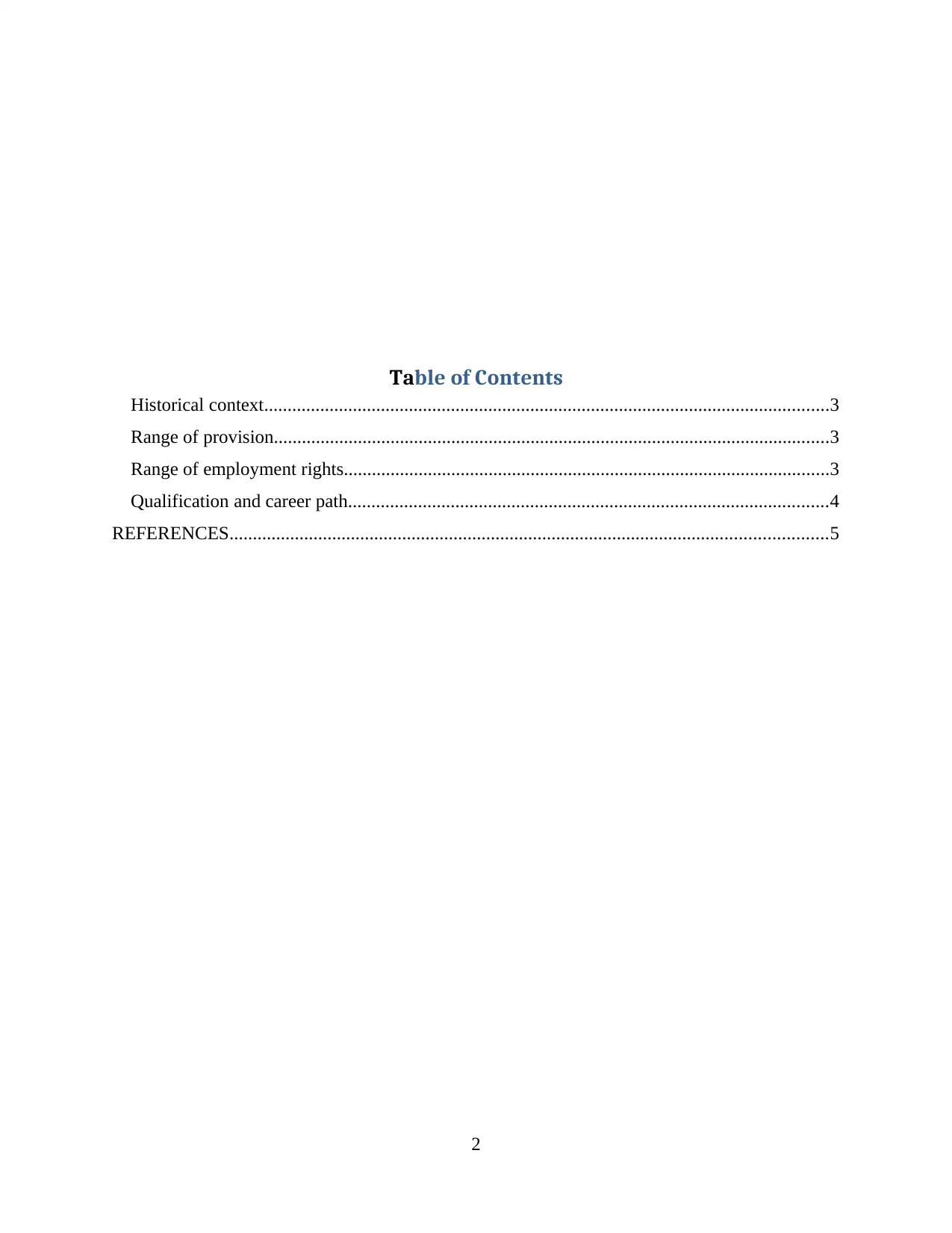
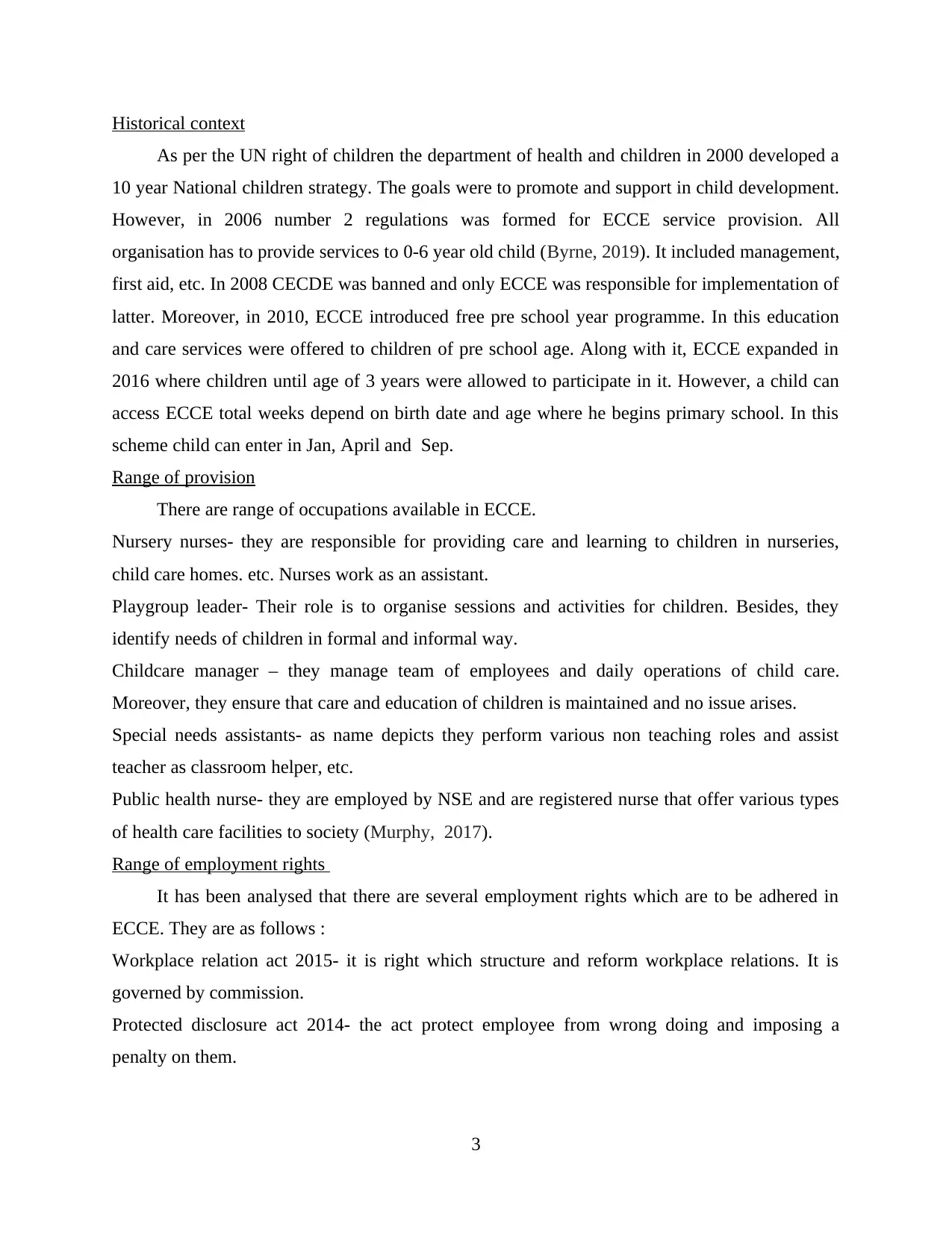

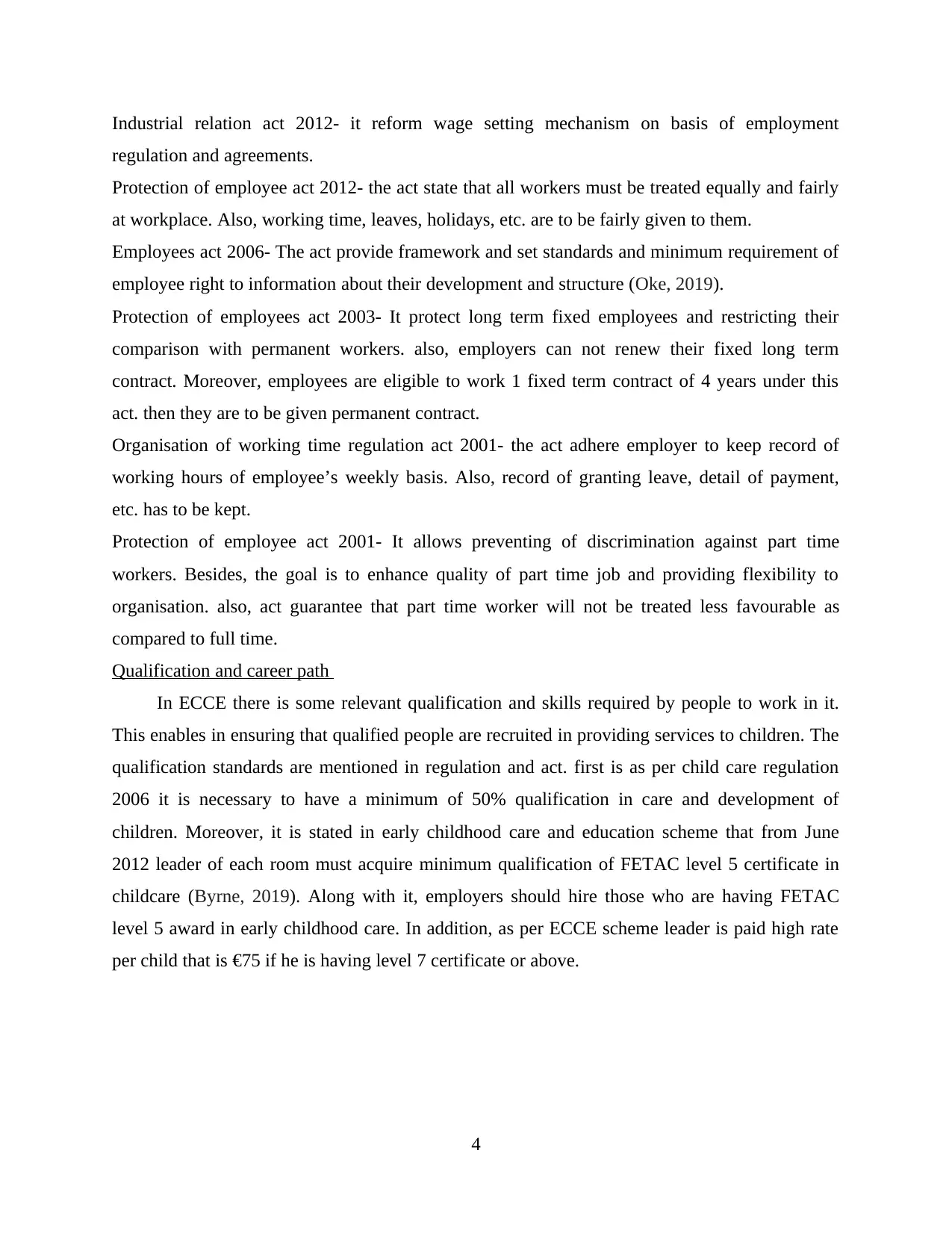
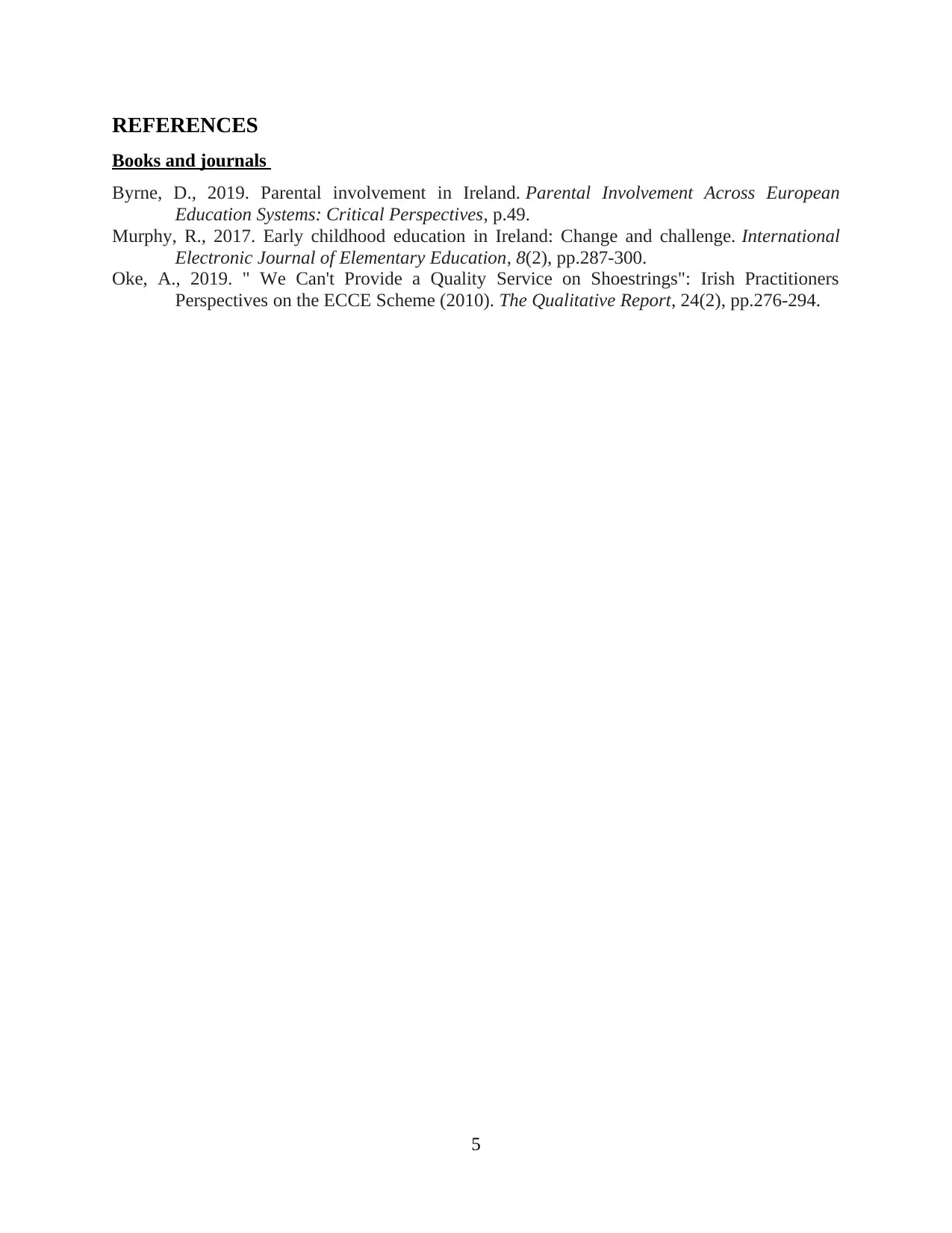






![[object Object]](/_next/static/media/star-bottom.7253800d.svg)